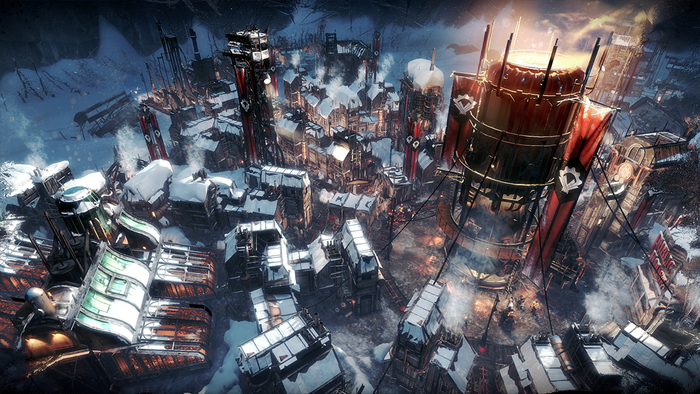In my previous post, I discussed the history and design goals of levels. This time around, I'll take a look at the pros and cons of using levels in an online RPG, as well as some systems that work to eliminate some of the problems with levels.

In my previous post, I discussed the history and design goals of levels. This time around, I'll take a look at the pros and cons of using levels in an online RPG.
Pros
To some extent, levels work in online games, so they aren't all bad. But, let's take a look at some of the areas where levels shine.
Familiar - Even for players who haven't encountered levels before, it's easy to understand the concept: a level 10 character is more powerful than a level 5 character, in general. If your character goes from level 5 to level 6, that's good! Bigger numbers are better! This concept doesn't require much explanation to new players.
Simple - The big win is that levels are easier to implement than many alternatives. They're much easier to implement and balance than a system that doesn't have levels. Having a single number at the core of many calculations makes it much easier to create game mechanics that work as a whole.
Popular - Many online games have levels at the core of the gameplay, so the issues they can bring are well understood. The design transfers to many different settings. Most players already understand the concept and understand what they have to do. With so many people using levels, too, you have a lot of people working on how to improve the system and work around design problems.
Cons
However, levels have a number of problems that people regularly point out. Some of these problems have solutions which I will talk about later.
Oversimplification - One problem is that a level-based system can simplify things too much. In some older games the long, hard journey between levels meant that you didn't get many upgrades. You also tend to be restricted in what you can do with your character based on level; no Priest in WoW can possibly get Shadowform before 40th level, for example.
Levels can also trivialize advancement. At level X I cast a fireball at a monster. At level Y, my fireball costs 30% more power (from a pool 30% larger) and does 30% more damage to a monster that has 30% more hit points. What have I gained other than seeing bigger numbers?
Segregation - No matter how hard you try, a high level character and a low level character are limited in how they can interact. A new character isn't going on a raid, for example. A high level character killing things in a low level area just seems like an jerk, not someone really playing the game.
As an example, you have a max level character that you play with your guild and other friends. Your significant other decides that he/she wants to play the game, too. Your options are limited if there isn't a sidekicking or mentoring system in the game. Do you roll another low-level character? Do you try to powerlevel your significant other with your main character? Do you just ignore your significant other and then risk a breakup or divorce?
C*ckblocking - You start playing in a game world and decide you want to see a dragon! Sorry, kids, you have to be this high (Nth level) before you can go see a dragon. What about doing some crafting? Sorry, you have to be M levels in order to get that crafting ability. Go on a raid with friends? Start a guild? Travel to another zone? Sorry, all these require you to have a specific level on one game or another. Even if the game doesn't explicitly have levels in it, some players may still judge based on levels; which guild would most people rather join: one where the guild leader is max level, or one where the guild leader is still very low?
Inappropriate - Sometimes a system of levels is just inappropriate for the game or setting. What is a level 15 Scientist, for example? Is that before or after studying for a PhD? Why does my character need to attain level 30 before learning to use staff weapons in a science fiction game? Why is an "Angry Bear" in one area level 11, while a "Wandering Bear" that looks identical to the first one is level 25 in another area? Levels don't always fit into a game, even the types of games for which levels were originally designed.
Some Solutions
Before I advocate ripping out levels completely from a game, let's look at some of the possible solutions that existing games have done to mitigate some of the problems.
Alternate Advancement - This was developed in EverQuest as one solution to the continual increase in the level cap. By gaining points from doing something beyond just murdering monsters, you can gain additional powers. In some ways, however, this is just another type of level.
Sidekicking or Mentoring - This allows one player to temporarily adjust their level to that of another player. City of Heroes allowed the lower level player to gain levels, while EverQuest 2 allowed the higher level player to drop down to the lower level player's level. This allowed people to focus on a single character yet still play with different groups of friends. The downside here is that a character with an adjusted level doesn't necessarily have "level appropriate" abilities. If space is limited, would you rather have a new player that just got jumped up several levels, or someone of the appropriate level that has all the powers for that type of character?
Talent and Skill Trees - This helps a player customize a character by selecting specific abilities based on points accumulated over time. This is a similar concept to Alternate Advancement, but it is usually more closely tied to the main level. The problem, especially with a "tree" type structure, is that the character is still limited by level. At lower levels, the choices often seem slim and nearly meaningless; the real power is usually at the higher levels where flexibility is important.
Eliminating Experience Points - EVE Online has done this to some extent. Instead of going out and killing things for points to level up, you gain skills over time, even when offline. This means that you don't have to mindlessly grind levels to get more powers. But, this still enforces a "time = power" paradigm that levels often enforce.
In a future post, we'll get the payoff: I'll present some of my own ideas for how to replace levels in a game.
(This post originally appeared at http://www.psychochild.org/?p=600)
Read more about:
BlogsAbout the Author(s)
You May Also Like







